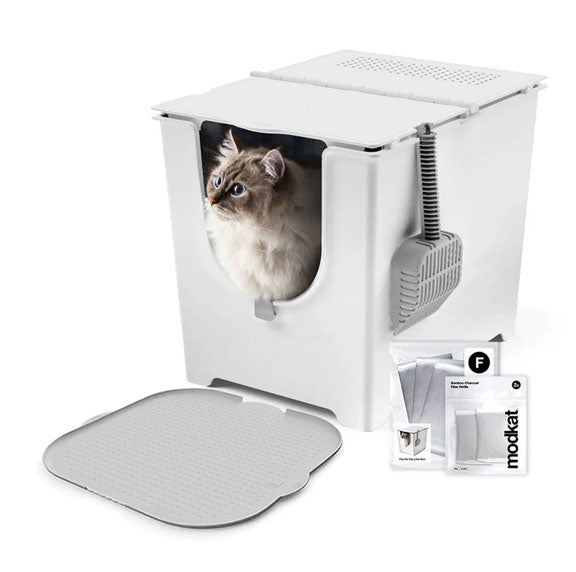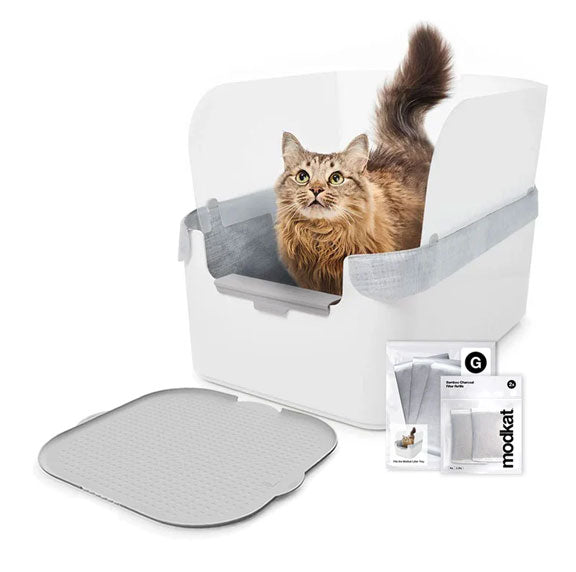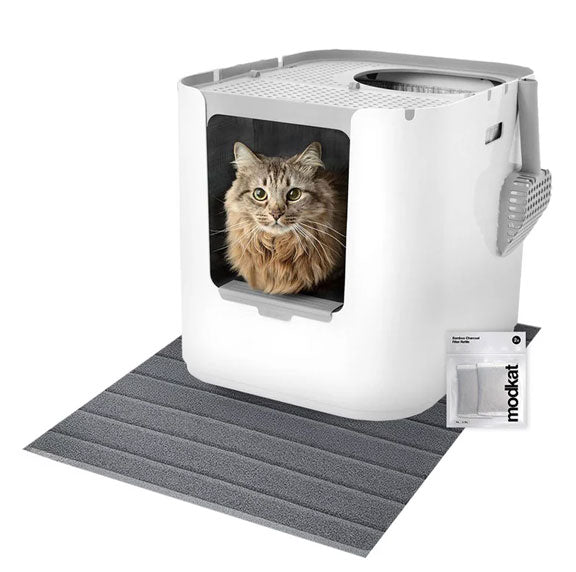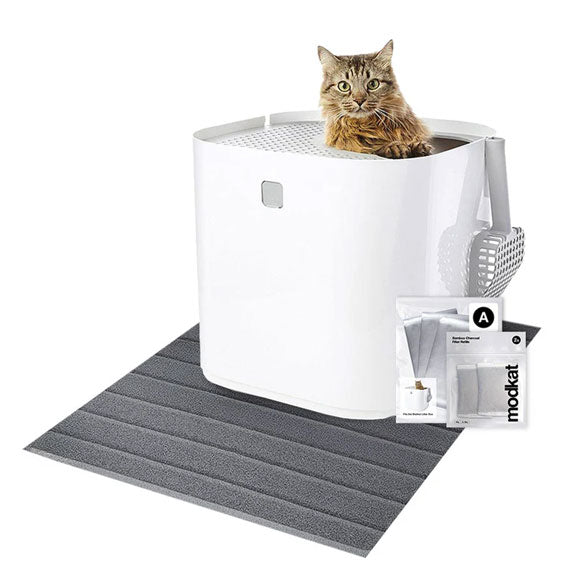20% off sitewide. Discount automatically applied.
20% off sitewide. Discount automatically applied.
Litter Boxes
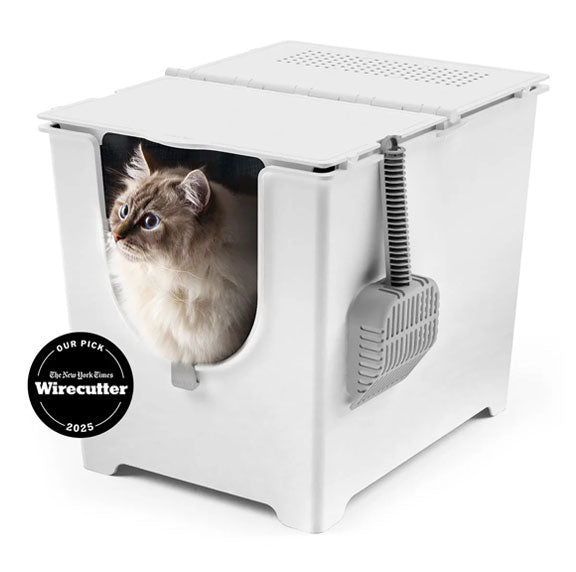
Modkat Flip
Front-Entry Litter Box
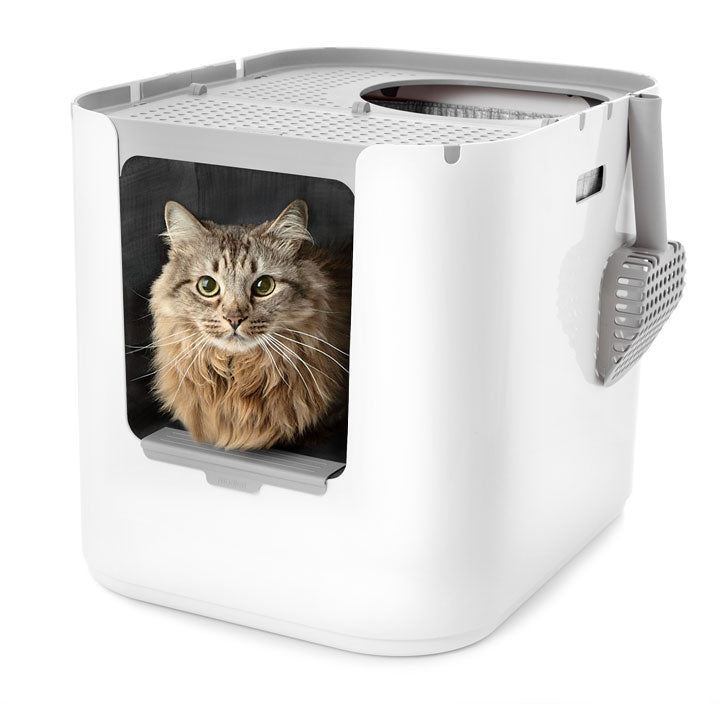
Modkat XL
Front/Top-Entry Litter Box
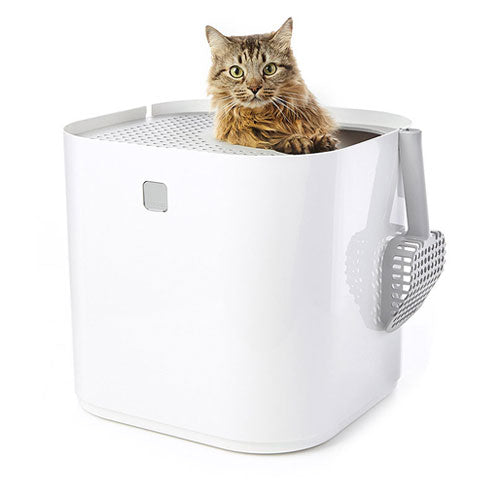
Modkat
Top-Entry Litter Box
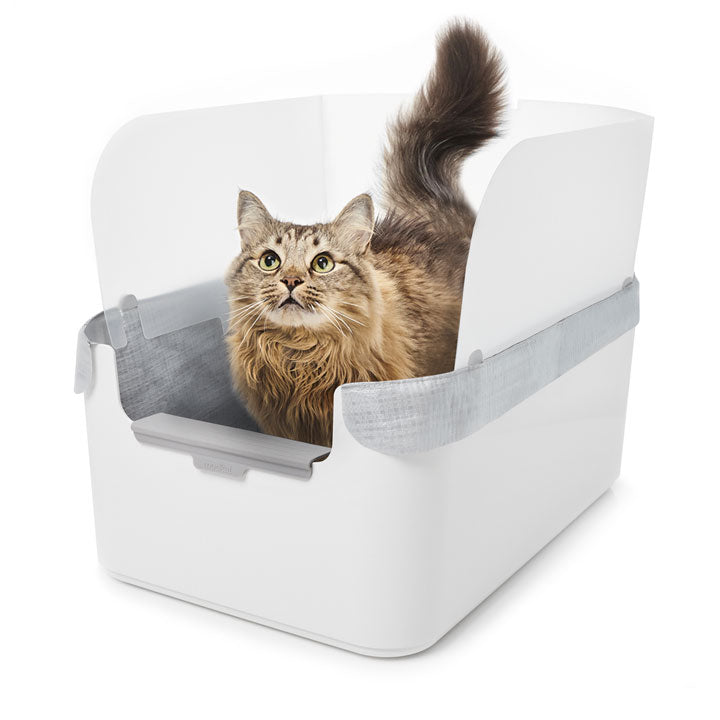
Modkat Tray
Open Litter Box
Bundles
Essentials
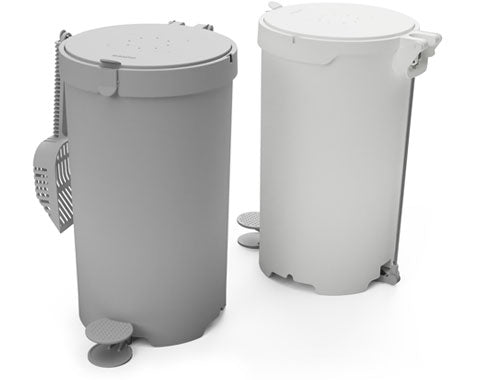
Litter Keeper
Two colors

Litter Mats
Multiple styles, colors & sizes
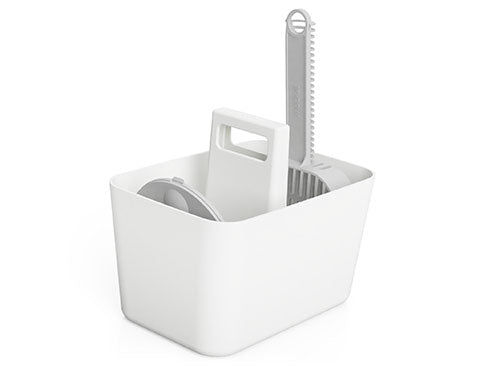
Tidy-Up Kit
Scoop holder & dustpan

Lounge + Play
Scratchers & toys
Refills
Add description, images, menus and links to your mega menu
A column with no settings can be used as a spacer
Link to your collections, sales and even external links
Add up to five columns
Add description, images, menus and links to your mega menu
A column with no settings can be used as a spacer
Link to your collections, sales and even external links
Add up to five columns
How to stop your cat from waking you up.
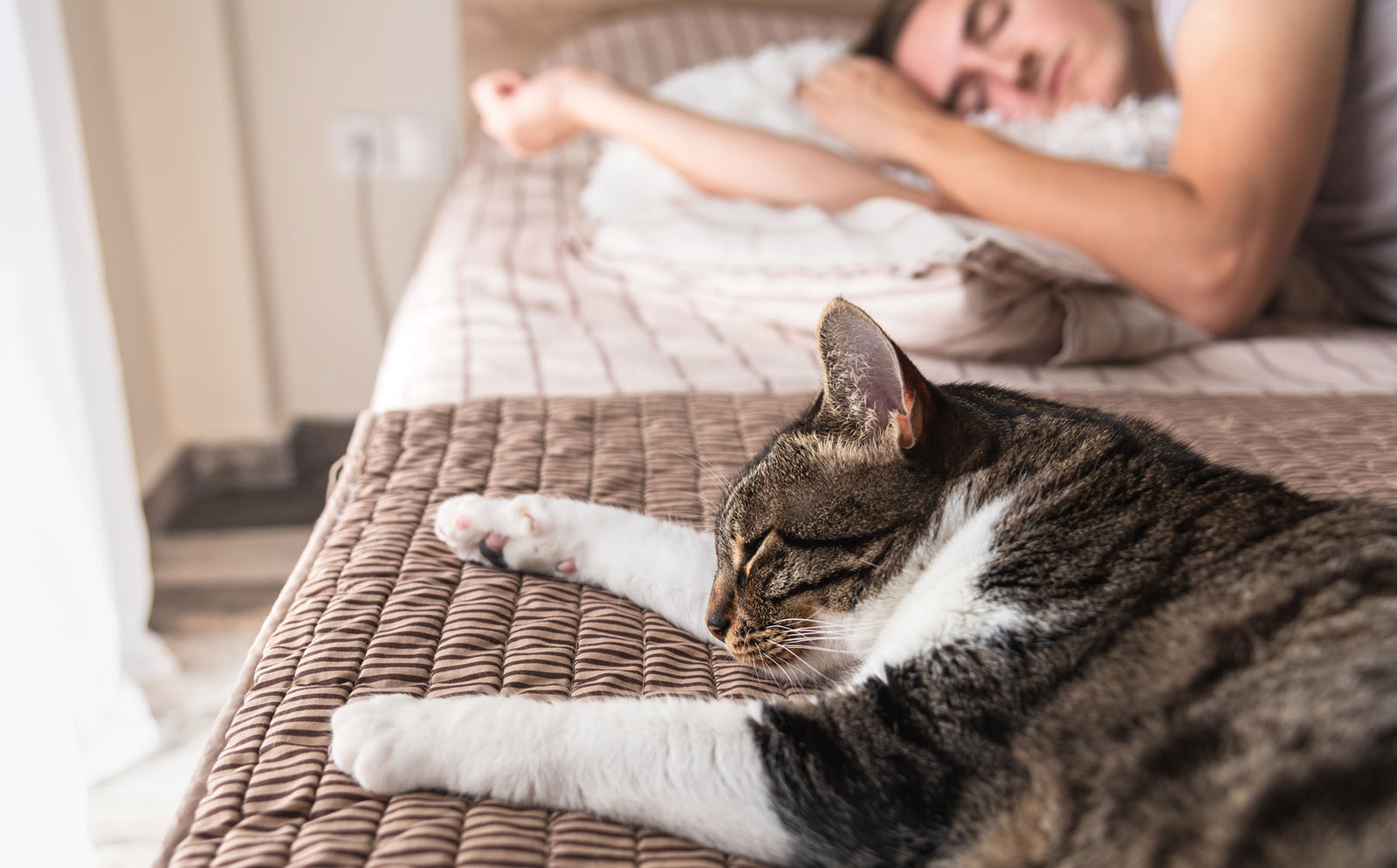
A loving headbutt and a loud purring in your ear may be a great way to start the day — but not if it's at 4:00 in the morning. At that hour, you just want your loveable little beast to let you get a bit more shuteye.
You're not alone. Lots of cat parents wake up much earlier than they'd prefer to in order to attend to the needs of their feline children. Still, it's an annoying habit, one that can interfere with work, family time, and even personal safety if you aren't getting enough sleep.
Let's talk about why our cats wake us up before daybreak and what we can do to curtail it.
Why does my cat get up so early?
Cats are crepuscular animals, which means they feel their friskiest at dusk and again at dawn. In the wild, cats hunt for food at these times and then spend the bulk of the day and night enjoying their food, sleeping, or hiding from predators.
Humans, on the other hand, are diurnal, meaning we generally stay awake during the day and sleep at night. While cats need 12-16 hours of sleep a day, they don't usually sleep for long stretches like we do. Instead, cats have periods of deep sleep followed by periods of light sleep. This sleep pattern allows them to conserve energy and be ready for hunting and exploring during their active hours.
While the average American house cat doesn't have to hunt for his breakfast, he maintains his ancient, inborn love of dawn and dusk. And of course, he figures when he's active, you should be, too.
Cats are not 100% driven by their instincts, however. The environment also influences a cat's behavior. Your pet might simply be getting up early because that's what time they're used to bouncing out of bed. They've been getting up at the crack of dawn so long, they might as well be hearing a tiny bugler play the Reveille in their ears when they see the sun's first rays.
We don't like to consider this possibility, but you may be encouraging these early morning romps. If you offer affection, attention, playtime, or food when your cat wakes up, you may unintentionally reward undesirable behavior. Why shouldn't she get up early if she's going to receive a treat?
Why does my cat wake me up?
Your cat could be waking you up for any number of reasons, but it's probably one of these:
Because he's bored. Cats weren't meant to spend their days lounging around the house, eating and sleeping like debauched members of some ancient nobility. They were meant to stalk, capture, and kill their prey all while avoiding becoming prey to another predator. The modern domesticated cat, therefore, can start to feel time hanging heavy on his hands if he doesn't have something to do. Waking up his human is an interesting and rewarding activity for him.
Because she's hungry. Cats are creatures of habit, and they are excellent at training their humans to accommodate those habits. If a cat gets used to eating at a certain hour, she'll expect food to appear at the same time and in the same place every day. If waking you is required to make that food appear, your pet sees no reason to interrupt a good thing. Get out of bed to feed her once, and your cat will expect a midnight snack on the regular.
Because he has the midnight crazies. You probably won't find this term in your common veterinary textbook, but "midnight crazies" is what most cat lovers say when talking about that spurt of energy some cats get in the middle of the night. If your cat is young or especially active, he may not have gotten in enough playtime during the day. So he's asking for it now. The only effective treatment for the midnight crazies is to wear out your pet with active play when you're both awake.
Because they want to cuddle. Sometimes cats meow at night because they're cold and they'd like to snuggle. If you have a hairless breed or live in an especially frigid part of the country, this might be your cat's concern. However, other cats may want to cuddle when they're feeling stressed by some change in their environment. Older cats who live with feline dementia may feel safer when snuggling with their humans.
How do I stop my cat from waking me up in the morning?
Since cats are crepuscular, they often like to wake up at dawn. Sometime between 5 and 6 o'clock in the morning, you may see that darling face looking into your sleepy one. If your cat's wake-up time is earlier than yours, this might be a behavior you want to stop.
Try establishing a consistent routine. Since cats are creatures of habit, a new routine might help them adjust their waking time to be more in line with your desired wake-up time.
You can also provide enrichment for your pet. Leave interactive toys or puzzle feeders out at night. This can keep your cat mentally stimulated and engaged during the early morning hours without needing your attention.
Stopping your cat from waking you up to eat in the morning.
If your cat associates breakfast with waking you up, consider adjusting their feeding time to be closer to when you want to wake up. This might help them learn that they'll be fed when you are ready to get up.
You might also experiment with an automatic feeder. Automatic feeders can dispense a small amount of food at a specific time. This might help distract your cat and give you some extra sleep.
How do I stop my cat from waking me up in the middle of the night?
If your cat is regularly getting rambunctious between 9 o'clock and 5 o'clock at night, that's not crepuscular behavior. Your pet is just wired. Try these tips to help curtail that behavior:
- Create a Comfortable Sleeping Environment: Ensure your cat's sleeping area is cozy, quiet, and dimly lit. This might discourage them from seeking your attention early in the morning.
- Ignore Attention-Seeking Behavior: If your cat is waking you up for attention, avoid giving in to their demands. If you consistently ignore their attempts to wake you up, they might learn that their efforts are not effective.
- Positive Reinforcement: When your cat remains quiet and calm during the early morning hours, provide positive reinforcement such as treats or gentle petting. This can encourage them to associate good behavior with rewards.
- Limit Evening Stimulation: Engage your cat in play and interactive activities during the evening to help tire them out. This might result in them being less active during the early morning hours.
How do you stop your cat from getting down with the "midnight crazies?"
The "midnight crazies" or sudden bursts of energy that some cats experience, often referred to as "zoomies," can be quite common.
Try engaging your cat in active play and exercise sessions during the day. Use feather wands or laser pointers, toys that bring out the cat's inner predator. Tire your pet out earlier in the day to reduce the likelihood of excessive energy at night.
Enrich your cat's environment with hiding spots, tunnels, and objects to explore. This can keep your cat engaged and mentally stimulated. Keep in mind that cats love to climb. So you might want to provide vertical spaces like cat trees, shelves, or perches where your cat can climb, explore, and expend energy.
Lastly, be sure to avoid encouraging the behavior. While a cat with the zoomies is adorable during the day, it's not so cute at night when you're getting pulled out of a dead sleep. You want to avoid encouraging or actively participating in the zoomies at night, as this could inadvertently reinforce the behavior.
As with most things, consistency is key. Try to maintain a regular schedule for feeding, play, and sleep.
Remember, some level of playfulness and energy bursts are natural for cats, especially during their active periods. The goal is not to eliminate these behaviors entirely, but rather to find ways to channel and manage them in a way that's both safe and enjoyable for your cat and your household.
Contrary to popular opinion, you cantrain your cat. It's not always easy, but it can be done. If you've tried routines and enrichment toys; automatic feeders and a sensible schedule for meals, then it may be time for more heavyweight action — melatonin.
All about melatonin for cats.
Can you really give your cat melatonin to calm down? Yes! Melatonin is a hormone that's naturally produced by the pineal gland in humans and animals, including cats. It plays a crucial role in regulating sleep-wake cycles and circadian rhythms. Melatonin supplements are often used to address sleep-related issues in humans. Melatonin for cats can induce the same results.
Before giving your cat any supplement, including melatonin, it's important to consult with a feline-friendly veterinarian. They can assess your cat's specific situation, recommend appropriate dosages, and ensure there are no underlying health concerns that might be contributing to the issues you're trying to address.
You'll also want to get your vet's professional opinion on the appropriate dosage and formulas as well as ask about side effects and possible interaction with other medications.
And speaking of veterinarians…
If your cat can't seem to stop waking up at midnight no matter what you do, you'll want to see the vet. Your cat could be waking you up because she's sick and wants you to know she's in pain. Diabetes, pain, infection, or hyperthyroidism could all cause your friend to experience discomfort.
Should you let your cat sleep with you?
Do you want your cat to sleep with you but you worry it's not in your pet's best interest? Maybe you don't want to share your pillow with your feline friend but think maybe you should. It's a conundrum, but one with a ready solution — ask yourself, what do you want to do?
Some people enjoy the comfort and companionship of having their feline friend cuddle up next to them at night, while others prefer to have a cat-free sleeping space. Either choice is fine.
If your cat's early morning wake-ups have become a problem, you may want to consider keeping them out of your bedroom at night. This can help establish a clear boundary and create a peaceful sleeping environment for yourself. However, it's important to note that abruptly locking your cat out of your room may lead to unwanted behavior, such as scratching at the door or meowing loudly.
Alternatively, you can try setting up a separate sleeping space for your cat within your bedroom. This can be a cozy bed or a cat tree with comfortable perches. By providing your cat with its own designated sleeping area, you can encourage them to settle down and sleep through the night without disturbing you.
Ultimately, whether or not to get your cat to sleep with you depends on what works best for you and your furry friend. Consider your sleep patterns, tolerance for disturbances, and your cat's behavior. With a little trial and error, you can find a sleeping arrangement that ensures a good night's rest for both you and your beloved cat.
Can you crate-train a cat?
Yes, you can crate-train a cat, although it's more commonly referred to as "crate acclimation" or "crate training" for cats. Crate training can be beneficial for various situations, such as travel, vet visits, introductions to new environments, and even as a safe space for your cat.
Follow these seven steps to go about crate acclimation for your cat:
- Select a crate that's appropriately sized for your cat. It should be large enough for them to stand up, turn around, and lie down comfortably. The crate should also have good ventilation and be secure.
- Start by placing the crate in an area where your cat spends time, such as a common room. Leave the crate door open and make it inviting. You can trick it out with soft bedding and familiar toys inside to enhance its comfort and style.
- Associate the crate with positive experiences. Place treats, toys, or even meals inside the crate to encourage your cat to enter willingly. Over time, your cat should begin to associate the crate with good things. Only move on to the next step after your cat is fully comfortable going in and out of the crate voluntarily.
- Start closing the door for short periods while your cat is inside. Stay nearby and provide praise, treats, or toys to make the experience positive.
- Increase the amount of time your cat spends in the closed crate gradually. Ensure they remain calm and comfortable during these periods. Avoid rushing the process; the goal is to build positive associations with the crate.
- Feed your cat in the crate to create a positive mealtime association. This helps your cat view the crate as a safe and positive space.
- Ensure the crate is always accessible and open for your cat to enter voluntarily. The crate can serve as a safe space for your cat to retreat to when they feel stressed or overwhelmed.
Crate acclimation takes time and patience. Use positive reinforcement, treats, praise, and gentle petting to reward your cat's calm behavior. Never force your cat into the crate or use it as a form of punishment. The goal is to create positive associations, not fear or stress.
Remember that each cat is unique, and the pace of crate acclimation can vary. Some cats may take to the crate more easily than others. The ultimate goal is to make the crate a comfortable, safe, and positive space for your cat. If you encounter challenges or resistance, consult with your veterinarian or a professional animal behaviorist for guidance.
Part of a happy, healthy relationship with your cat is making sure you both get adequate rest, exercise, attention, and nutrition. Keeping your cat from waking you up is one way to help you both stay in tip-top shape.
Give your cat all the comfort and enrichment they need with Modkat litter boxes and accessories. 🐈
“It looks nicer than any other hooded or open option we considered.”

Categories
Meow from Brooklyn.
Sign up and get early access to product drops, exclusive offers, and the occasional cat meme.
Similar products related to this blog:
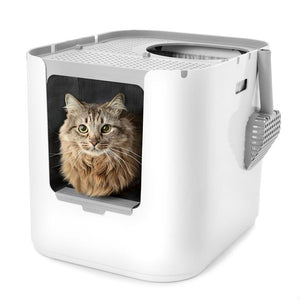
"It looks nicer than any other hooded or open option we considered."

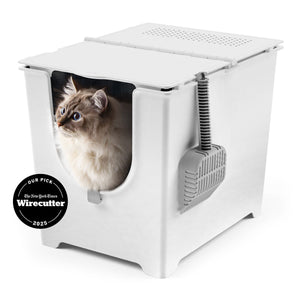
"This litter box keeps everything in, nothing gets out the sides."
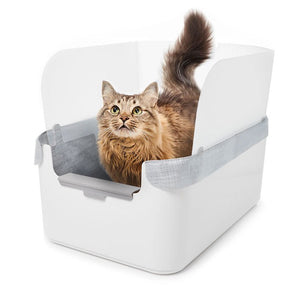
"My beautiful ragdoll cat and I both love the new Modkat Litter tray!"

